Literacy
The development of strong literacy improves the life chances of young people and gives them the key skills that are the fundamentals of everyday life. All teachers at HOH are teachers of literacy. Literacy includes reading, writing, and communication; all of which are developed each day and are a core element of all curriculum areas. We have the expectation that all staff deliver and model fundamental literacy skills to a high standard. We acknowledge that within specific subject areas disciplinary literacy is key to pupils making rapid progress in their specific subjects. Leaders strategically map both literacy and disciplinary literacy opportunities into their curriculums and select content and texts that promote engagement and love of reading.
We have a Literacy Strategy that builds on the core principles of the English KS1/KS2 curriculum and ensures that no child is left behind. Similarly to our primary curriculum’s intent, through the framework of the MYP, we are able to teach children how important their written, visual and oral language skills are within the real world and not just within their time at HOH.
Through analysis of pupil outcomes, we target specific intervention strategies for groups of pupils to ensure that all pupils, no matter their starting point, have the best chances of securing outcomes. In turn, this will ensure that pupils can access their next steps of education and support them in the employment process.
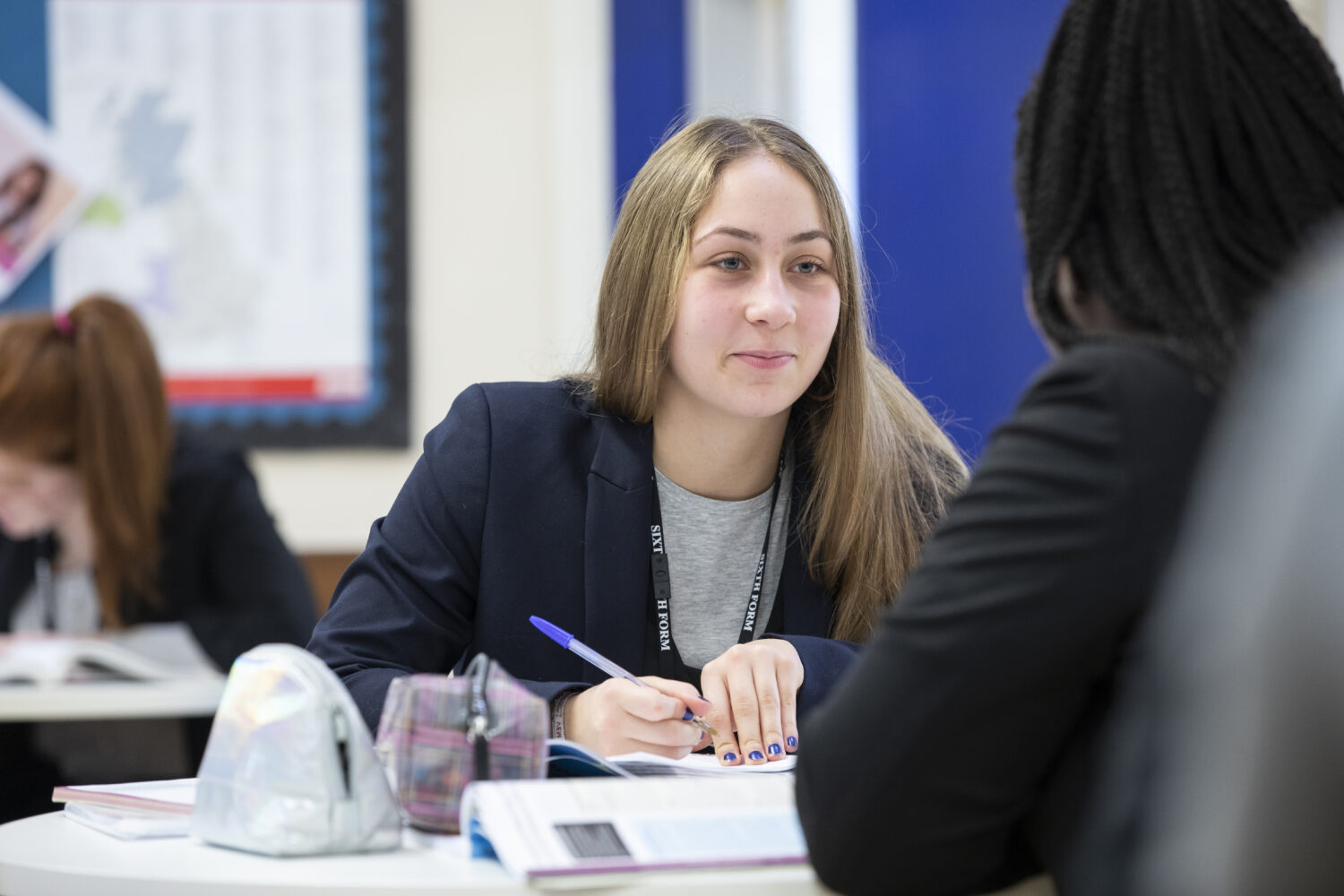
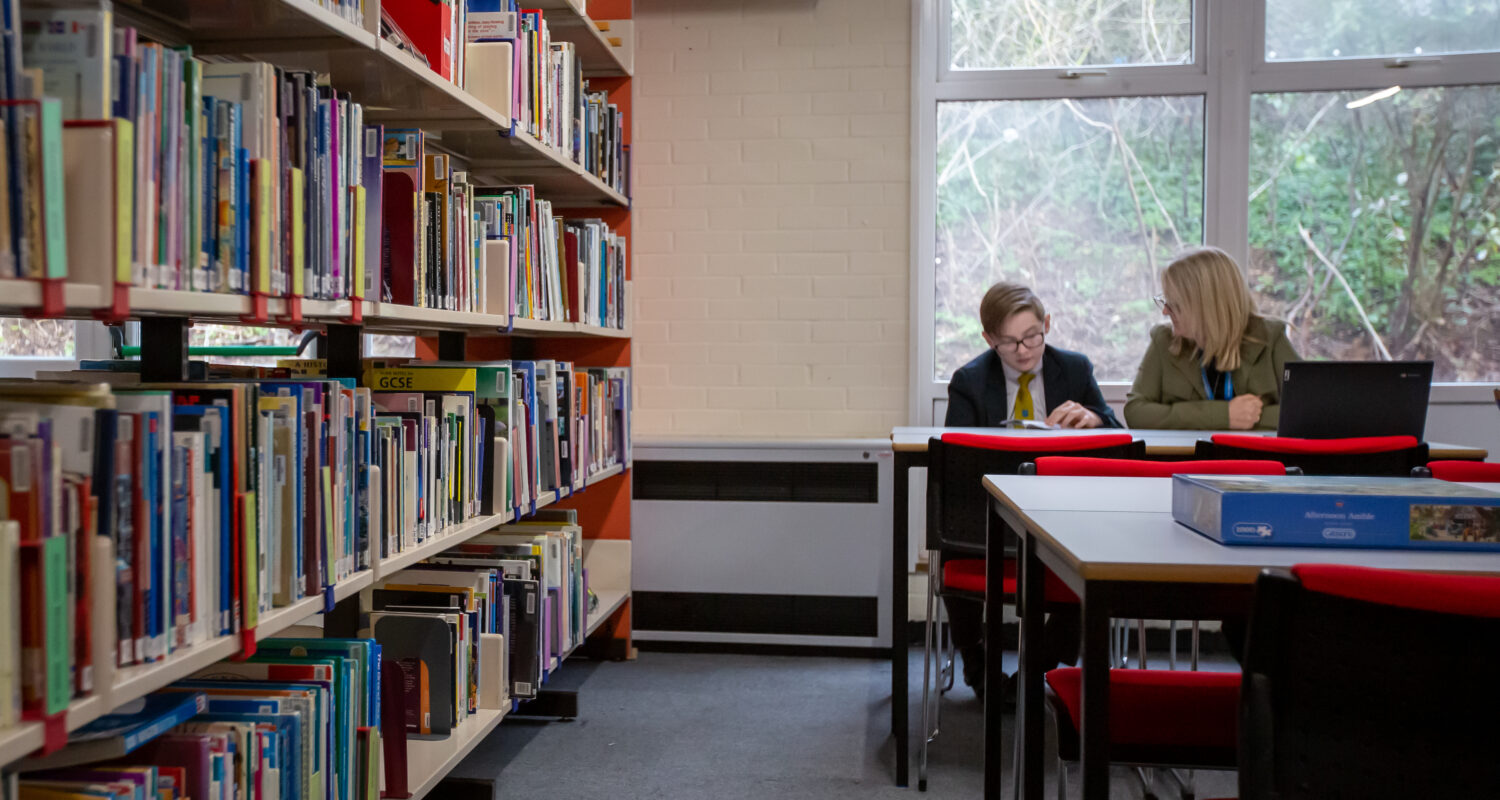
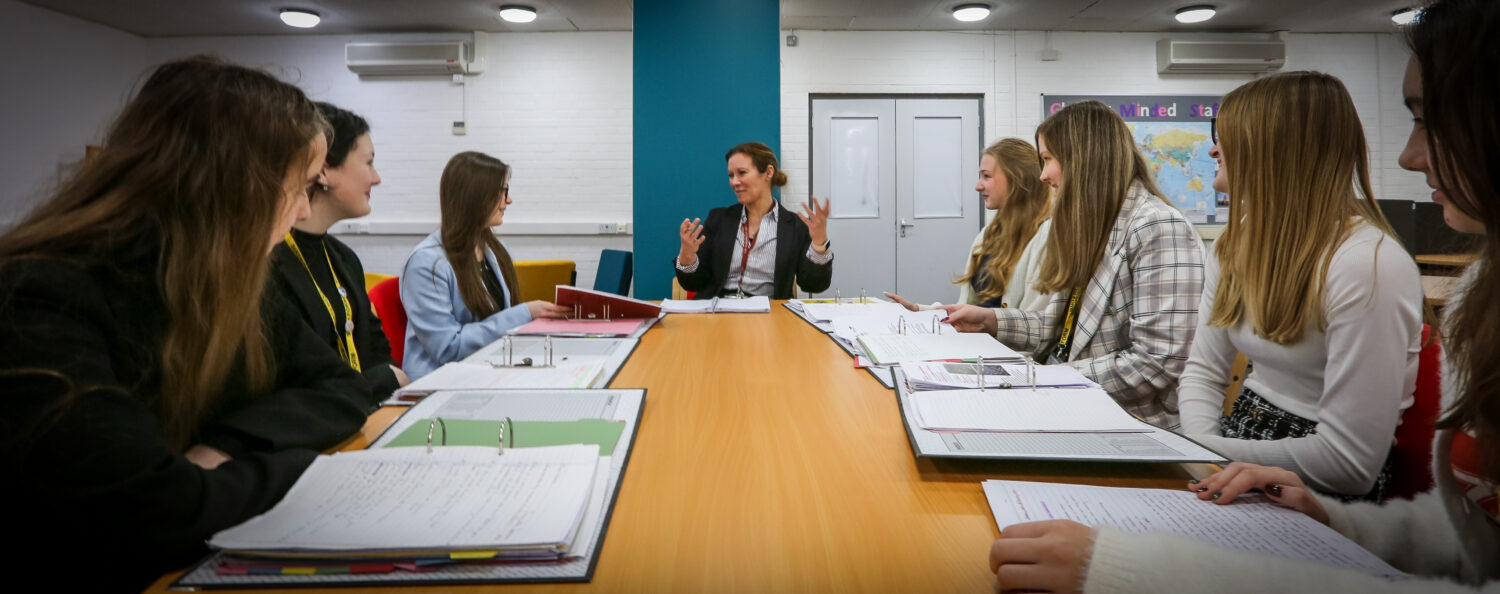
All teachers are teachers of literacy. All teachers model high expectations of written and verbal literacy.
As part of our broad and balanced curriculum, our leaders plan for opportunities to explicitly teach the disciplinary literacy needed for pupils to communicate like academics in their subject areas.
We have the expectation that all staff deliver a weekly literacy lesson working on specific spelling, punctuation and grammar skills during form time. Fortnightly literacy activities are tailor-made for all form tutors to use. They are designed to address and rectify specific weaknesses in basic spelling, punctuation and grammar. Whole school CPD is delivered to all staff as compulsory training to ensure teachers are aware of how important this is for pupils and are confident in their delivery of this.
Our pupils use Knowledge Organisers in all of their subjects. Using these, pupils prepare for lessons by learning specialist vocabulary, spellings and definitions of new words in advance. In all subjects, pupils are tested sometimes daily, often weekly and always termly on their retention.
All staff use our literacy marking policy alongside their own subject mark schemes when marking pupil work.
Key disciplinary literacy is identified in advance of teaching, and strategically mapped into all subject’s spiral curriculum so it is taught explicitly to maximise retention.
Knowledge Organisers make lessons more accessible and they improve subject specific literacy. Pupils are constantly enhancing their vocabularies and appreciate the value in knowing key words and their definitions.
Pupils have immediate access (both at home and in class) to the spelling of key words, grammatical rules and definitions.
Our literacy marking policy ensures that literacy development is are a key focus for all staff and pupils.
Explicit teaching of key disciplinary literacy ensures that pupils can access and communicate well in their specific subject areas.
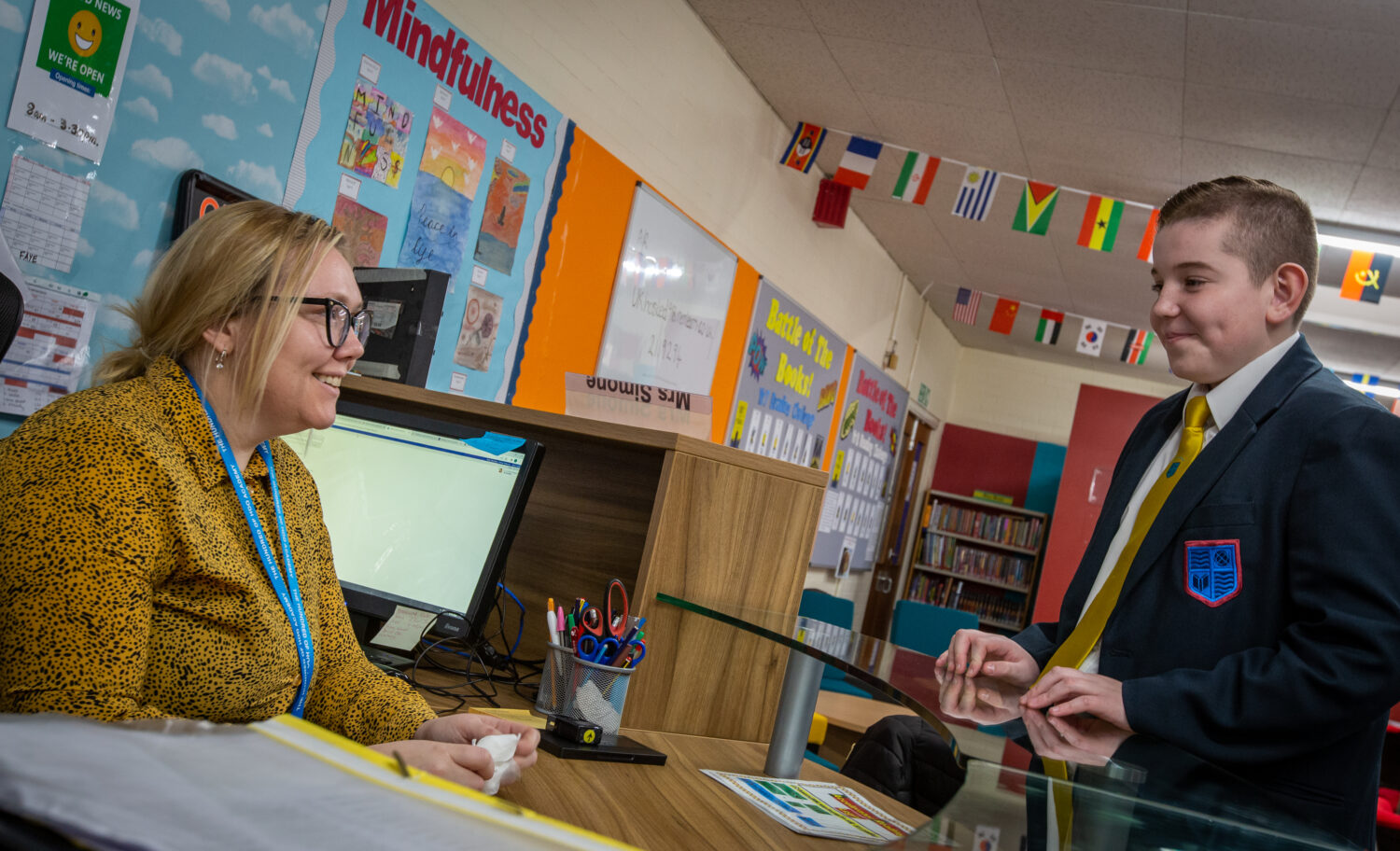
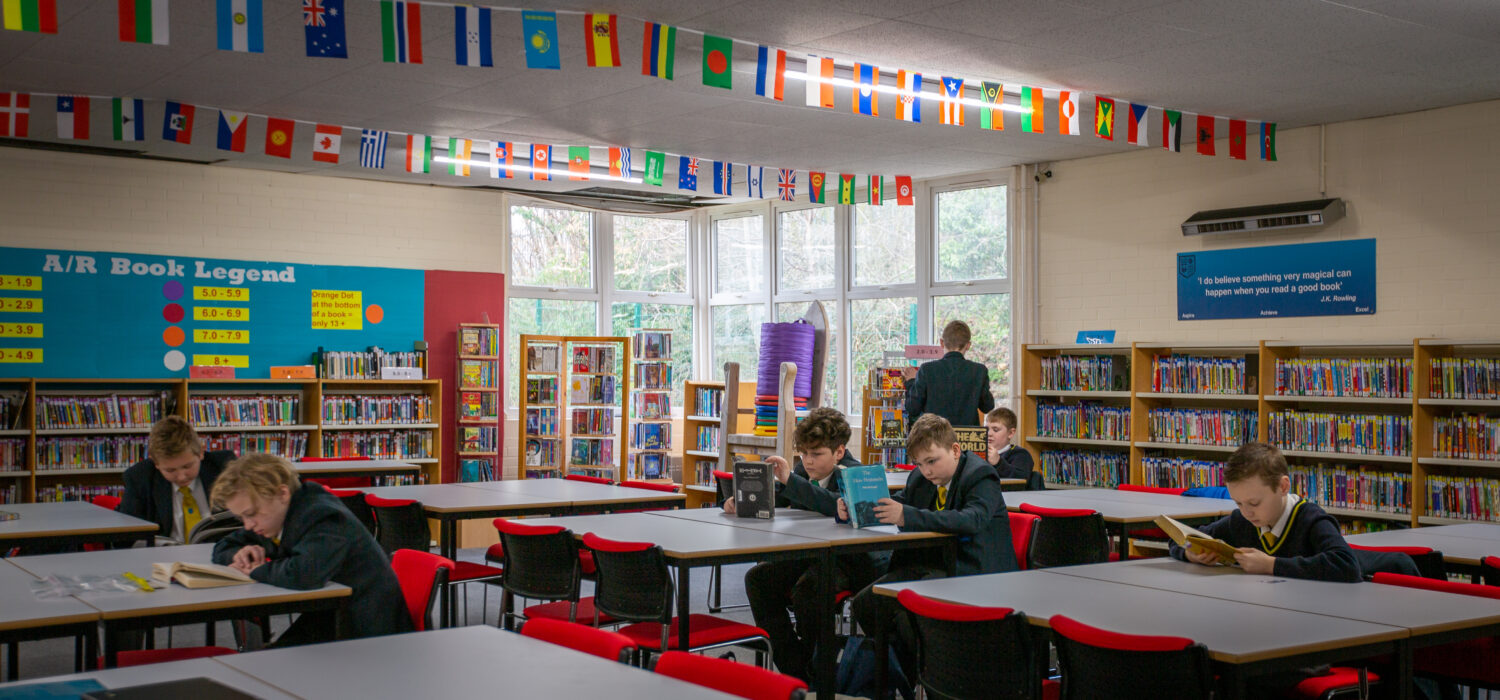
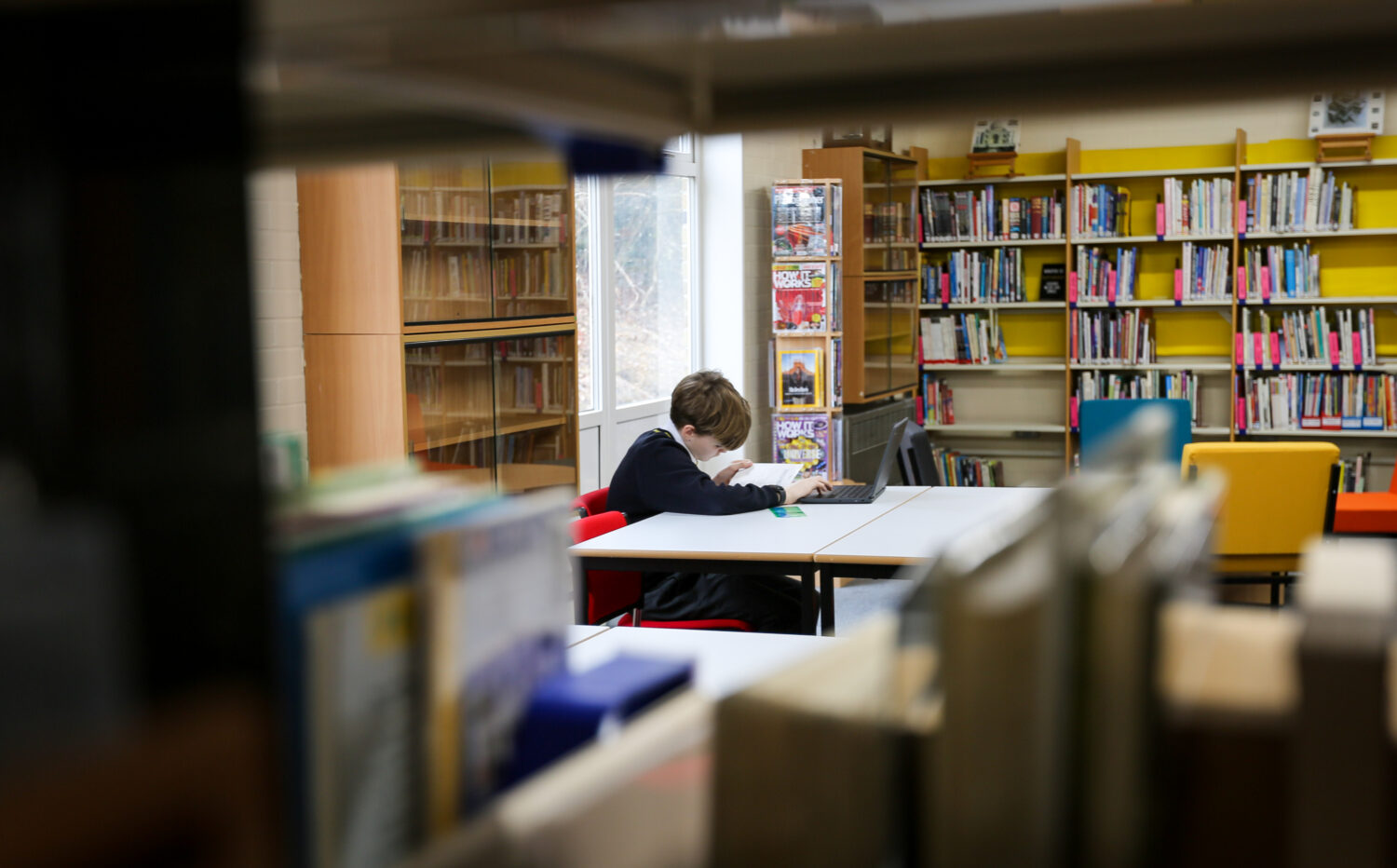
Reading
At HoH we acknowledge research from the EEF that, “Reading strategies, such as activating prior knowledge, prediction and questioning, can improve students’ comprehension” and that, “Strategies can be introduced through modelling and group work, before support is gradually removed to promote independence.” As such, we’ve not only developed our Theme Of The Fortnight (TOTF) Reading session, to ‘Reciprocal Reading’ but we’ve shaped our Library Lessons to mirror this research.
The whole school reads routinely once a week during registration time. Form tutors and pupils use ‘Reciprocal Reading’, a structured guided reading programme, to explore a range of fiction and nonfiction extracts. Pupils take on roles to explore the text in depth aiding their comprehension skills. Reading for an extended period of 20-30 minutes encourages pupils to habitually read for enjoyment and supports reading fluency. It allows staff and pupils to celebrate reading, engage with a range of fiction and non-fiction, and articulate their thoughts and feelings about texts and their links to the world around us.
Equally, our Library plays an important role in our Literacy Strategy. Our year 7 and 8 pupils have timetabled curriculum lessons in our Library. In these, they can select from a vast array of books to withdraw and read for pleasure. With guided reading, we lead pupils as a group to ensure they’re not only reading for pleasure but comprehension and fluency too. We have selected contemporary texts based on our pupils’ interests and issues they may have faced in their lives.
Learning to read is a fundamental life skill. We embed a variety of strategies into our broad curriculum to teach reading for pleasure, comprehension and fluency.
By all teachers having a responsibility to embed reading into their lessons, we share the responsibility to ensure pupils are prepared for not only their next steps in education, but employment and the wider world.
We use reading age testing to measure our pupils as we aim for them to be reading at an age appropriate level.
We celebrate World Book Day every year.
Library Lessons are a timetabled part of the Year 7 and 8 curriculum. Pupils undertake guided reading to measure comprehension and fluency. All pupils withdraw books, selected in collaboration with their teachers and library staff to ensure they can read for pleasure at home. All teachers are aware of students’ current reading levels and can use this information to guide students towards progress.
Reciprocal Reading is our weekly Drop Everything and Read Session. Form tutors facilitate guided reading as pupils take on roles to explore the text in depth aiding their comprehension skills. Reading for an extended period of 20-30 minutes encourages pupils to habitually read for enjoyment and supports reading fluency. It allows staff and pupils to celebrate reading, engage with a range of fiction and non-fiction, and articulate their thoughts and feelings about texts and their links to the world around us
Reading Intervention is put into place for pupils across KS3 who aren’t yet reading in line with their chronological age. This group primarily focuses on reading for pleasure. It offers pupils a safe space to enjoy reading, and practise their fluency.
Lexia PowerUp is used when pupils have below average scores for reading and spelling, risk of dyslexia after screening or a formal diagnosis of dyslexia. It is designed to help pupils primarily in KS3 to improve their basic reading and comprehension skills. However, it can also support pupils in KS4 who are struggling to access the GCSE curriculum. The program helps teachers address gaps in fundamental literacy skills while helping students build the higher-order skills they need to comprehend, analyse, evaluate, and compare increasingly complex literary and informational texts
Phonological Awareness Training Programme (PAT) is used when pupils are identified as having below average scores for phonological awareness and skill. The PAT is based on research that identifies the importance of phonological awareness in the development of reading.
- Our pupils, across multiple year groups, read widely and often.
- Pupils can access and read a variety of texts, including ones that enhance their understanding of specific elements of their curriculum.
- Reading ages improve with time, closing the gap between our pupils’ chronological age and their reading ability.
- Pupils are ready for their next steps in education or employment.


